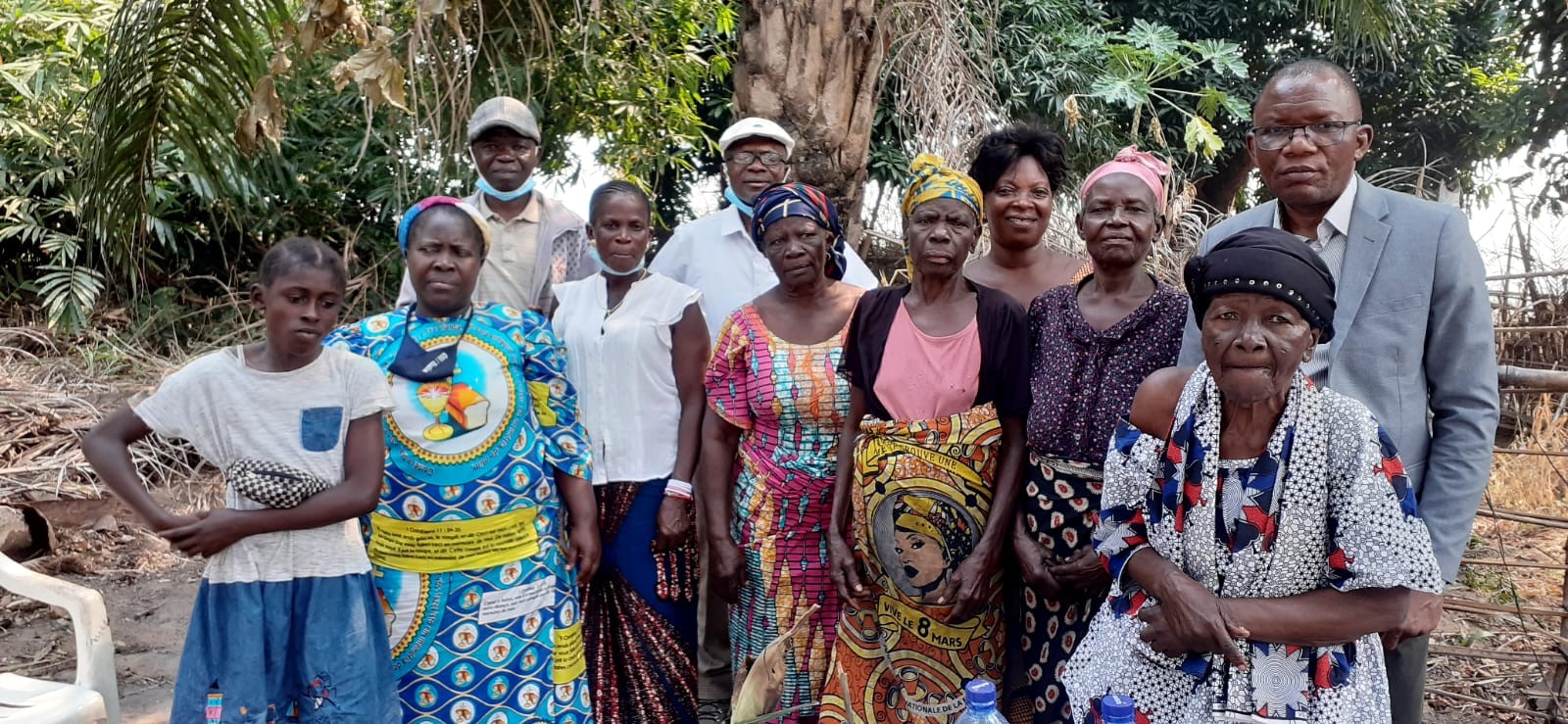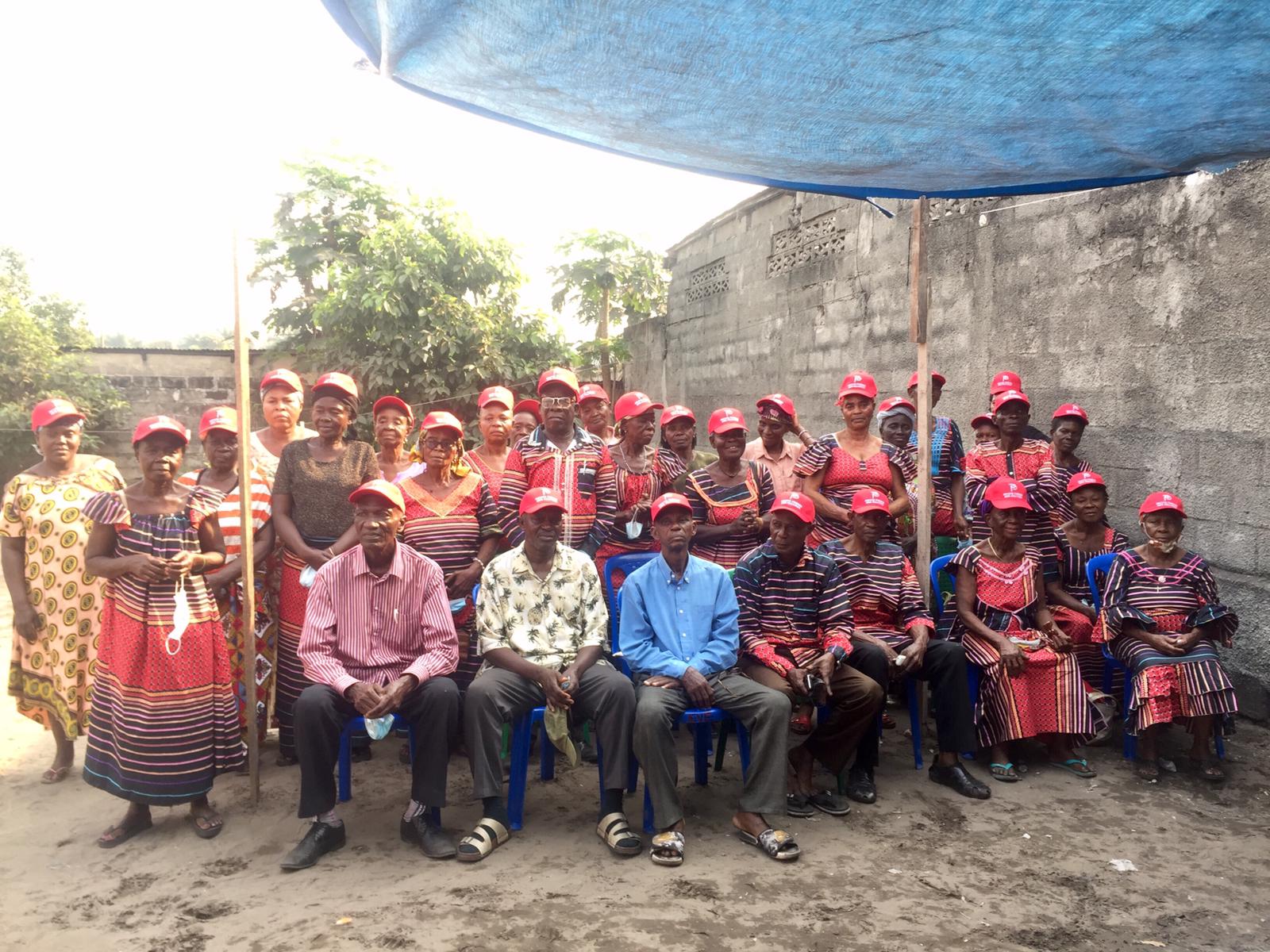AARP What challenges do older persons face in the Democratic Republic of the Congo? How does your organization address these challenges?
Triphon Mawete The major challenges for older persons in the Democratic Republic of the Congo are:
• Poverty/economic insecurity
• Access to health care in general, an absence of gerontologists and geriatricians, and a lack of expertise in pathology
• Isolation, loneliness, and rejection by younger generations
• Accusations of witchcraft and the casting of harmful spells on the rest of the population
• Lack of social protection
As part of our efforts to address these challenges, our association established a home visiting program that decreases isolation and loneliness by encouraging intergenerational connections. Additionally, we organize monthly activities for older people, where they come together, help each other, and share their experiences. These activities include meal distribution events, birthday parties, dance and literacy classes, and intergenerational meetings where younger individuals can learn about their community’s history as well as teach computer skills to older adults.
Our organization also hopes to shift the perceptions that younger generations have of older persons. To do so, we work to raise awareness about older persons’ rights and social contributions by creating poster campaigns, hosting conferences and seminars, joining conversations on the radio, and leading one-on-one conversations with community members. We have been highlighted on TV and national radio several times, and we visit schools to describe our work and mission.
 AARP How does your organization amplify the effects of any policies, laws or community practices that are already making a difference in the lives of older people?
AARP How does your organization amplify the effects of any policies, laws or community practices that are already making a difference in the lives of older people?
TM Currently there are no laws that specifically protect the rights of older persons in the Democratic Republic of the Congo. In response to this lack of legal protection, our organization initiated a collaboration with members of the parliament to draft and pass such laws. We also collaborate with other organizations to achieve this goal. An example of a project that makes a difference in the lives of older people is our housing project, which provides welcoming homes for older persons.
AARP How has your work been affected by the COVID-19 pandemic?
TM The pandemic prevented us from holding our monthly meetings, depriving older persons of an opportunity to socialize with one another. The several-months long quarantine introduced in the Democratic Republic of the Congo also limited our ability to make home visits. As a result, isolation and loneliness among older persons has increased. The association was also affected by older persons and volunteers fearing COVID-19. Some volunteers no longer wanted to go to people's homes, and some seniors were afraid of contracting the virus.
AARP How do you motivate volunteers to work for your organization? On the other hand, how does your organization develop a relationship with the communities and individuals that could benefit from your assistance? What is your biggest challenge with outreach?
TM The association sets up training and awareness days to motivate volunteers. Additionally, volunteers are excited by the fact that Amité Seniors et Jeunes is a partner of a French organization, Les Petits Frères des Pauvres, and other local host institutions.
To develop relationships with our community and the older population, volunteers work in local neighborhoods, which helps to promote and amplify the mission of our association.
The major challenge we face with respect to outreach is that older persons are often considered to be witches in the Democratic Republic of the Congo, and so they are often rejected and excluded from their communities, particularly by younger generations. For this reason, the association strives to involve young volunteers and calls itself “Amitié Séniors et Jeunes,’’ which means Friendship Between Seniors and Young People.
 AARP Which of your projects have been most successful? How does your organization define success? What challenges did you face during project implementation?
AARP Which of your projects have been most successful? How does your organization define success? What challenges did you face during project implementation?
TM Our most successful events are:
• Monthly meetings
• Home visits
• October 1st celebration for the International Day of Older Persons
• End of the year community celebrations
Testimonies from older persons indicate that these activities create a sense of “togetherness” and help to combat isolation. Antoinette, a woman who joins various events, put it this way: “Since I started participating in the activities of the association, I have no more grief/sorrow and I feel young again. I regained a second family.”
Furthermore, older persons are happy about the Christmas gifts, such as groceries and clothes, they receive from our team as well as the sense that they are being cared for.
The association’s major challenges include a lack of financial resources to cover transportation costs for volunteers distributing food to older persons suffering from great poverty, and the size of the city of Kinshasa, which can make it difficult to get from one point to another.
Another challenge is that we do not have a specific space for hosting our activities. We have land at our disposal but do not have the financial means necessary to construct a building yet.
AARP How do you promote intergenerational friendships and the integration of older people into larger communities?
TM One of our organization’s goals is to raise awareness of the challenges and realities facing older persons among young people so that they become volunteers with us. The association leads activities at primary schools to involve youth in efforts to integrate older persons into their community. The association also organizes community meals with activities arranged by young people. In the district of the association's headquarters, young people have mobilized, and we can now see that older people are meeting every month as a result of their support.
AARP Since aging is often associated with witchcraft or considered a “condition of concern,” how does your organization combat negative perceptions of aging? Do these negative perceptions affect your work? What needs to be done to shift the public’s perception of aging?
TM Older citizens are often accused of being sorcerers in the Democratic Republic of the Congo because poverty makes them a financial burden for their families. This phenomenon is growing in both urban and rural areas, as the country's economic and social situation deteriorates from year to year. Beyond the difficulties of setting up activities for the elderly, the association faces a lack of support from a public that does not understand why we look after “sorcerers,” who some believe “should be left to die.”
A shift in perceptions of older persons will only be possible through a communications campaign (posters, radio, TV) where volunteers can raise awareness and share their experiences. The status of older persons in Congolese society would also change if local politicians and stakeholders (organizations, civil society, schools) became involved in these efforts to fight against negative perception of old age by supporting the adoption of a law on the rights of older persons.
For more information, visit: https://amitieseniorsetjeunes.org/